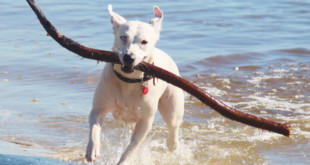Can Dogs Have Orange Sherbet – As temperatures rise and the summer heat settles in, there’s nothing quite like the refreshing taste of a cold treat to cool us down. As we indulge in icy delights like gelato, ice cream, and sorbet, our furry friends stare up at us with hopeful eyes, wondering if they too can partake in the sweetness. Today, we explore whether dogs can enjoy a classic summer treat: orange sherbet. Let’s delve into the details and find out if this tangy dessert is safe for our four-legged friends to enjoy.
Table of Contents
1. Dogs and Frozen Treats: Exploring the Possibility of Orange Sherbet
Orange sherbet may seem like an unusual choice for dog treats, but with a little bit of research and experimentation, it’s possible to create a cool, refreshing snack for our furry friends. Here are a few things to keep in mind when considering whether to make orange sherbet a part of your dog’s diet:
– Consider your dog’s allergies: Like humans, dogs can be allergic to certain foods, including dairy products. Make sure to check with your veterinarian to verify that your dog can safely consume dairy-based treats before trying out a recipe that includes orange sherbet.
– Use natural ingredients: Whenever possible, opt for fresh, natural ingredients when making treats for your dog. Avoid artificial colors, preservatives, and sweeteners that can be harmful to their health.
– Experiment with texture: While some dogs may enjoy the smooth, creamy texture of orange sherbet, others may prefer a crunchier option. Consider incorporating crushed biscuits or frozen fruits to add some variety to your dog’s frozen treats.
Ultimately, the decision to introduce orange sherbet into your dog’s diet should be made with their health and preferences in mind. With the right approach, however, it’s possible to create a fun and refreshing treat that both you and your dog can enjoy on a hot summer day.
2. Understanding the Nutritional Needs of Dogs and How They Relate to Orange Sherbet
When it comes to dogs and their dietary needs, it’s essential to provide them with a balanced diet. Nutrients such as protein, carbohydrates, fiber, vitamins and minerals all play a vital role in keeping your pup healthy and happy. One of the most important factors in maintaining your dog’s nutritional balance is ensuring they receive adequate amounts of essential vitamins and minerals.
Vitamin C is one of the most important vitamins for dogs as it helps maintain healthy skin, bones and teeth while also helping to fight off infections. Orange sherbet is rich in vitamin C and can be a great addition to your dog’s diet, but it shouldn’t be used as a substitute for a balanced diet. When feeding your dog orange sherbet, make sure it is given in moderation, and that the sugar content is minimal.
Orange sherbet can be especially helpful for dogs recovering from surgery or injury, as it can help boost their immune system and speed up the healing process. Remember that your dog’s nutritional needs will vary depending on their age, breed, weight, and activity level, which is why it’s important to speak with a veterinarian to ensure that your canine companion is getting the nutrients they need to live a healthy and happy life.
3. Can Dogs Safely Consume Orange Sherbet? Experts Weigh In
Orange sherbet is a refreshing treat that many people enjoy. However, if you’re a dog owner, you might be wondering whether this dessert is safe for your furry friend. While some foods are unsafe for dogs, others can be consumed in moderation. Here, we take a closer look at whether dogs can safely consume orange sherbet.
According to veterinarians, orange sherbet is not toxic to dogs, but it should be given with caution. This is because it contains sugar and dairy, two ingredients that can upset your dog’s stomach and cause tummy troubles. Moreover, some dogs are lactose intolerant, so consuming dairy products such as sherbet can lead to diarrhea, vomiting, and gas.
- If you decide to share orange sherbet with your dog, make sure to:
- Avoid giving them large amounts at once as it may cause gastrointestinal issues
- Ensure that the sherbet does not include any artificial sweeteners such as xylitol, which can be highly toxic to dogs
- Always give sherbet as an occasional treat to avoid weight gain and other health issues
You might also want to consider making homemade dog-friendly sherbet, which is free from harmful ingredients such as sugar and dairy. Instead, you can use ingredients such as plain yogurt, pumpkin, and fruits to make a refreshing treat that your dog will love. By taking these precautions, you can safely share orange sherbet with your furry friend, or opt for a healthier homemade alternative.
4. The Science Behind the Sweetness: Analyzing the Ingredients of Orange Sherbet and Its Effects on Dogs
Orange sherbet is a common dessert that contains a variety of ingredients. These ingredients are responsible for the sweetness and the unique characteristics of the dessert. Apart from the taste and the texture, the ingredients in orange sherbet can also have an impact on dogs, which are known for their love for sweets.
One of the main ingredients of orange sherbet is sugar. It is responsible for the unique sweetness in the dessert and can instantly elevate the taste. However, it should be noted that excessive sugar intake can be harmful to dogs and can lead to obesity, diabetes, and other health problems. Another important ingredient in orange sherbet is orange juice. Orange juice is rich in vitamin C, which can benefit dogs by boosting their immune system and promoting overall health. However, it should be noted that orange juice can also cause stomach upset and gastrointestinal problems in dogs if consumed in excess.
Apart from sugar and orange juice, other ingredients that can be present in orange sherbet include milk, cream, and egg whites. These ingredients can provide additional nutrients and can affect the texture and flavor of the dessert. However, it should be noted that not all dogs can tolerate these ingredients and can be allergic or intolerant to dairy products. As such, it is important to monitor your dog’s reactions after consuming orange sherbet or any other food containing these ingredients.
5. Orange Sherbet Alternatives for Dogs: Delicious Treats That Won’t Harm Your Furry Friend
Looking for a cool treat for your furry friend that won’t harm them? Orange sherbet might not be the best choice, but fear not! Check out these delicious alternatives!
1. Peanut Butter Ice Cream:
This creamy ice cream is made with just four simple ingredients: bananas, peanut butter, Greek yogurt, and honey. It’s high in protein and healthy fats, and your pooch is sure to love its rich peanut butter flavor. Simply combine all the ingredients in a blender, pour the mixture into ice cream molds, and freeze for several hours until the ice cream becomes solid.
2. Frozen Blueberry Yogurt:
Blueberries are a great source of antioxidants and fiber, making them an excellent choice for your furry friend. To make frozen blueberry yogurt, blend plain Greek yogurt and blueberries in a blender until you achieve a smooth texture. Pour the mixture into ice cream molds and freeze until solid. Your dog is sure to enjoy this sweet and tangy treat.
3. Watermelon Popsicles:
Watermelon is a refreshing and hydrating fruit that your dog will love. Simply blend fresh watermelon chunks in a blender until you achieve a smooth texture, pour the mixture into ice cube trays, and freeze until solid. You can also add other dog-friendly fruits such as apples or carrots to the mix for added nutrition. These colorful and tasty popsicles are perfect for a hot summer day.
Don’t give up on tasty treats for your dog just because orange sherbet is not a good option. With these alternatives, your pup can stay cool and satisfied without harming their health.
If you’ve ever found yourself wondering “can dogs have orange sherbet?”, hopefully this article has provided some answers and insights into why this might be a tricky question. Ultimately, there’s no easy answer—it depends on the individual dog and type of sherbet. As with anything else, it’s important to ask your vet for the best advice about what will work for your pet companion. From ingredients to safety, it’s better to err on the side of caution when giving your pup special treats or snacks.
 Treat For Dog – Brain Training for Dogs, Dog Training & Obedience Discover Treat For Dog and get your pup on the path to smarter, happier, and healthier living with brain training for dogs.
Treat For Dog – Brain Training for Dogs, Dog Training & Obedience Discover Treat For Dog and get your pup on the path to smarter, happier, and healthier living with brain training for dogs.




